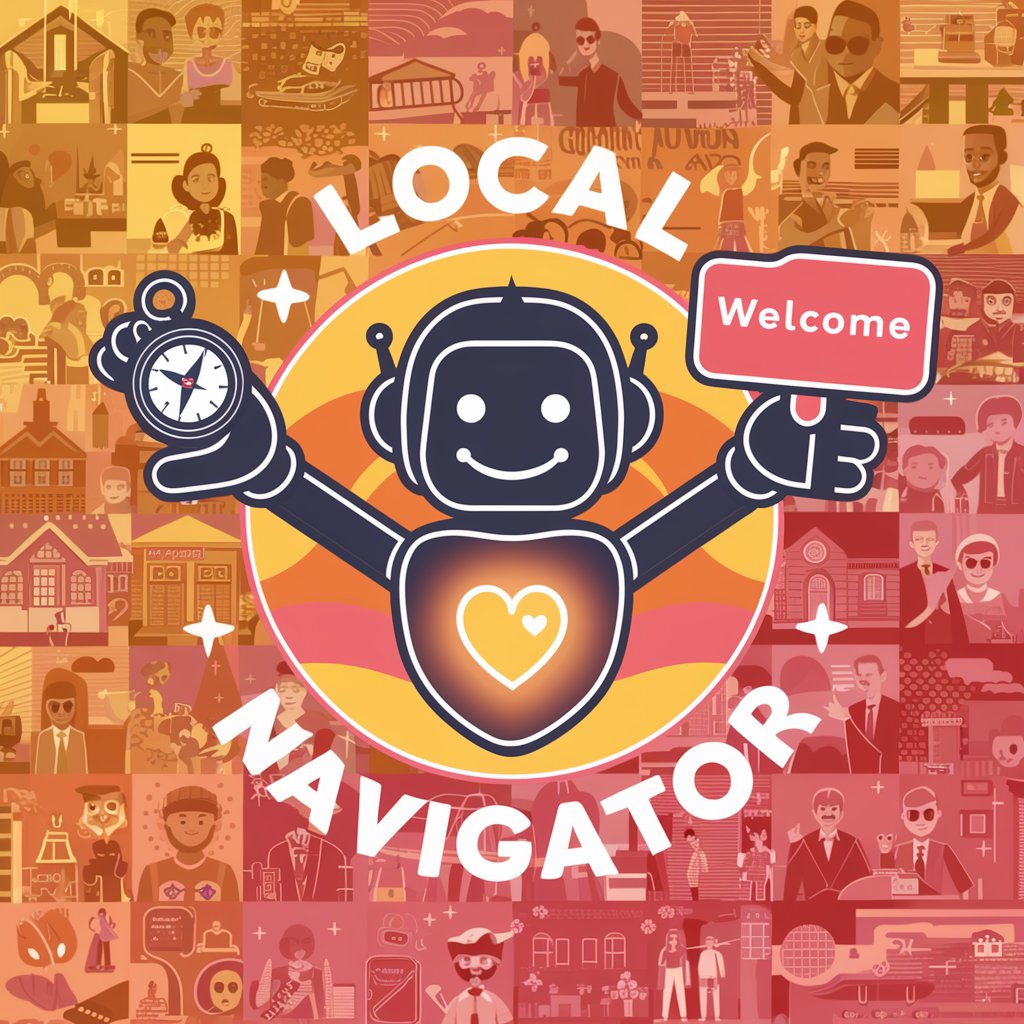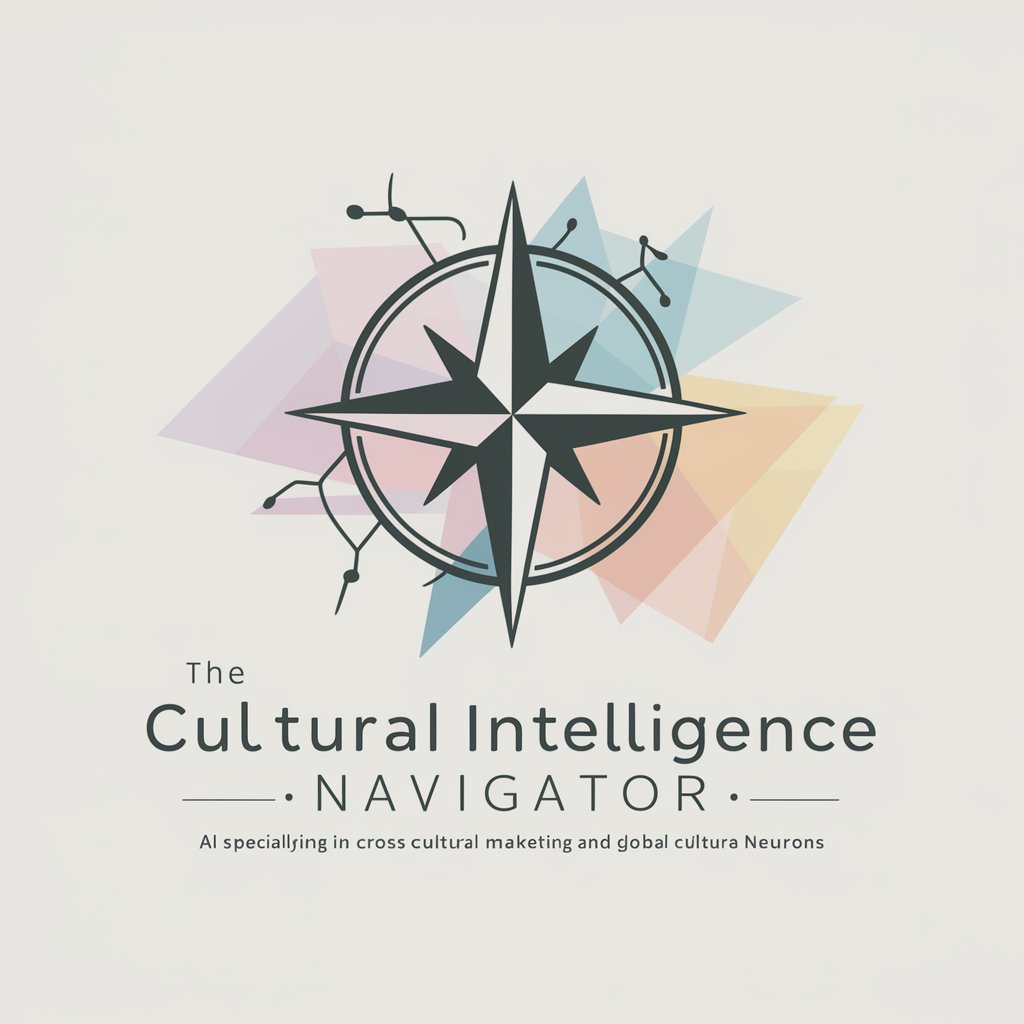
US Cultural Navigator - American Culture Guide

Hi there! Let's explore American culture and language together!
Deciphering American culture with AI.
Can you explain what the term 'lit' means and how to use it in a sentence?
What does 'FOMO' stand for, and in what context is it commonly used?
I've heard people say 'spill the tea.' What does this phrase mean?
Could you clarify what 'ghosting' means in social situations?
Get Embed Code
Overview of US Cultural Navigator
US Cultural Navigator is designed as an AI-powered assistant to help individuals, particularly those from non-American backgrounds, navigate the intricacies of American culture with a focus on language nuances. This includes understanding and using slang, acronyms, buzzwords, and other cultural references that are prevalent in everyday American English. For example, if a user is puzzled by the phrase 'spill the tea,' US Cultural Navigator would not only explain that it means to share gossip or news, but also provide context and examples, like how it might be used among friends discussing recent events. Powered by ChatGPT-4o。

Core Functions of US Cultural Navigator
Slang and Idiom Clarification
Example
If a user encounters the term 'shoot your shot,' US Cultural Navigator would explain that it means to take a chance or make a move, often in the context of dating or career opportunities, and might be used as encouragement in a conversation.
Scenario
A user reading an American dating advice column comes across the advice to 'shoot your shot' and turns to US Cultural Navigator for clarification.
Acronym Deciphering
Example
For acronyms like 'FOMO,' the Navigator would explain it stands for 'Fear Of Missing Out,' a common feeling of anxiety that an exciting event may be happening elsewhere, often amplified by social media.
Scenario
A user sees a post with the hashtag #FOMO and wants to understand the sentiment behind it.
Cultural Context and Usage
Example
When asked about the cultural significance of Thanksgiving, the Navigator would detail its historical background, current traditions, and typical ways families might celebrate, including common dishes like turkey and pumpkin pie.
Scenario
A non-American user is invited to a Thanksgiving dinner and uses US Cultural Navigator to learn about the holiday's customs and what to expect.
Who Benefits from US Cultural Navigator?
Non-American Residents and Expatriates
Individuals who have recently moved to the US and are encountering American culture and language in depth for the first time. They benefit from the Navigator by gaining insights into everyday expressions and cultural nuances, easing their social integration.
International Business Professionals
Professionals engaging with American clients or colleagues can use the Navigator to understand cultural references or business jargon that may not be familiar, enhancing communication and preventing misunderstandings.
Language Learners and Educators
Those studying English, especially American English, and educators teaching the language can utilize the Navigator as a resource for real-world examples of slang, idioms, and cultural references, making learning and teaching more relatable and effective.

How to Use US Cultural Navigator
Start Free Trial
Access the platform at yeschat.ai for a complimentary trial, no signup or ChatGPT Plus required.
Choose a Service
Select the 'US Cultural Navigator' from the available service options to begin.
Enter Your Query
Type your question or phrase related to American culture, slang, or language nuances.
Receive Guidance
Review the detailed explanations, examples, and context provided for your query.
Interactive Learning
Engage further by asking follow-up questions or requesting examples to deepen your understanding.
Try other advanced and practical GPTs
US Economy
AI-driven insights into the U.S. economy

Life Coach Bot
Empowering growth with AI-guided coaching

LLM Prompt Engineer
Elevate AI Interactions with Expert Prompt Engineering

Website Traffic Tool
AI-powered insights into website traffic.

How to Make
Empowering Creation with AI Mentorship

New GPT
Explore the Hazbin Hotel Universe with AI

US GAAP Advisor
Demystifying US GAAP with AI

US General Aviation Expert
AI-powered General Aviation Expertise

Employee Schedule Helper
AI-powered scheduling for seamless shift management

ProtreptiCoach-Employee
Empowering Self-Discovery Through AI

Anti AI Detector Tool
Unveil the human touch in AI-written text.

ChronoCoder
Streamlining Code with AI Precision

Frequently Asked Questions about US Cultural Navigator
What is US Cultural Navigator?
US Cultural Navigator is an AI-powered tool designed to help users understand and learn about American culture, especially language nuances such as slang, acronyms, and buzzwords.
How can I learn American slang effectively using this tool?
Enter slang terms or phrases into the tool to receive detailed explanations, usage examples, and cultural context, enhancing your understanding and ability to use them correctly.
Can US Cultural Navigator help with understanding American jokes or idioms?
Yes, the tool provides explanations, origins, and examples of American jokes, idioms, and phrases to help users grasp their meanings and contexts.
Is there a way to practice what I've learned through US Cultural Navigator?
Engage with the tool by asking follow-up questions, requesting more examples, or using the interactive features to apply and reinforce your learning.
Can US Cultural Navigator assist with academic writing?
While primarily focused on cultural and conversational language, the tool can provide insights into formal and informal language usage, aiding in the understanding of tone and context in academic writing.





